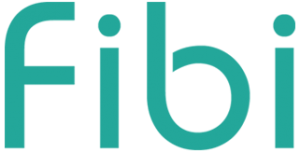Grants are awesome! They help fund projects, research, and initiatives that make the world a better place. As a grantmaker, you have the unique opportunity to support amazing organizations and individuals who are dedicated to making a difference. But let’s be honest, managing grants can be a bit daunting. That’s why we’ve created this quick guide to help you navigate the grant management process and make informed decisions when awarding funds.
What is Grants Management?
Grants management is the process of overseeing the entire lifecycle of a grant, from application to closeout. While grant seekers are responsible for coming up with proposals and asking for funding, grantmakers are responsible for reviewing proposals, giving out grants, and making sure the money is being used correctly. Effective grants management involves creating systems and processes that ensure accountability, transparency, and compliance with legal and ethical standards.
Who is a Grant Manager and What is Their Role?
At the heart of every grant-making organization is the grant manager or administrator – the person who oversees the entire grant-making process. They’re like the quarterback of a football team, calling the plays and making sure everyone is on the same page.
They review grant proposals, check out potential grantees, hand out grants, and make sure everyone’s following the rules. Basically, they’re in charge of making sure the organization’s resources are being used wisely to reach its goals.
The Grant-Making Process:
The grant-making process can be broken down into three phases: pre-award, award, and post-award. Here’s what happens in each of these phases:
Pre-Award Phase:
The pre-award phase is the initial stage of the grant-making process, which involves setting up the grant program, soliciting grant proposals, and reviewing grant applications.
Key to-dos in this phase:
- Define clear and measurable goals and objectives for your grant program, and communicate them effectively to potential applicants.
- Develop detailed guidelines and criteria for applicants, including eligibility requirements, submission deadlines, and evaluation criteria, to ensure that you receive high-quality proposals.
- Advertise the grant opportunity widely and consider partnering with organizations that can help you reach a diverse range of potential applicants.
- Review grant applications thoroughly and fairly, taking into account the specific needs and challenges of each applicant.
- Select grant recipients based on the strength of their proposals and their capacity to implement the proposed project successfully.
Award Phase:
The award phase is when the grant is officially awarded to the chosen applicants.
Key to-dos in this phase::
- Issue grant award letters promptly and provide clear and concise information about the terms and conditions of the grant.
- Negotiate grant terms in a collaborative and constructive manner, taking into account the needs and constraints of both parties.
- Disburse grant funds in a timely and efficient manner, and ensure that recipients have the support they need to implement the project successfully.
Post-Award Phase:
The post-award phase is the period after the grant has been awarded and involves monitoring grant progress, evaluating the results, and closing out the grant.
Key to-dos in this phase::
- Monitor grant progress regularly and provide support and guidance to recipients as needed.
- Evaluate the results of the grant program objectively and systematically, and use the findings to inform future grant-making decisions.
- Ensure that grant recipients are meeting reporting requirements and complying with grant terms and conditions, and address any issues promptly and fairly.
- Close out the grant efficiently and effectively, and maintain clear and accurate records of all grant-related activities and transactions.
Grant-making can seem like a daunting process, but it doesn’t have to be. By breaking it down into distinct phases and using tools like Fibi, you can streamline the process and make it more manageable. Remember, at the heart of it all, grant-making is about helping others and making a positive impact. With the right mindset and resources, anyone can make a difference through grants.
